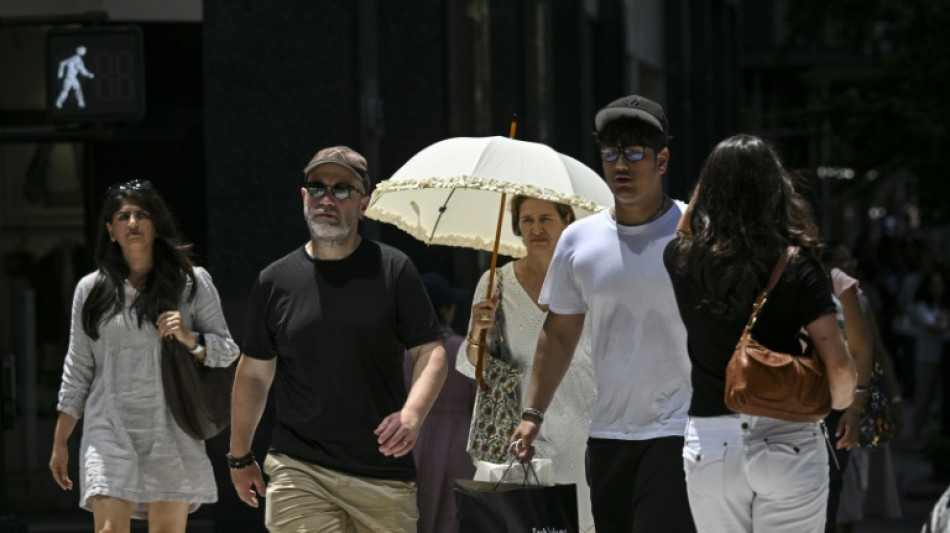
CMSC
0.0300


Tens of millions of Americans sweltered outside or sought air-conditioned refuge as an "extremely dangerous" heat wave blanketed the eastern United States on Tuesday with record high temperatures.
As a fierce sun reflected off the skyscrapers of New York, the normally frenetic Times Square was virtually deserted by mid-day as the mercury reached 99 degrees Fahrenheit (37 Celsius), the hottest since 2012 in the Big Apple.
By mid-afternoon Newark, New Jersey hit 103F (39.4C), according to the National Weather Service, and Philadelphia also reached 100F (38C).
New Yorkers walked under umbrellas as they navigated the streets of Manhattan, while others sunbathed in swimsuits in parks.
"It's been kind of a cold spring. Then all of a sudden, boom, here it is," Eleanor Burke, 82, told AFP of the heat, recalling how she took a dog for a walk the night before and "he almost looked like he was dead."
Soaring temperatures are straining the city's power grid as people crank up their air conditioning. In the Bronx, a New York borough, a blackout left more than 34,000 homes without power, prompting energy supplier Con Edison to urge residents to moderate their electricity consumption.
The NWS warned of East Coast temperatures of 97F-103F (36C-39.4C) on Tuesday, and a heat index -- what the temperature feels like with humidity factored in -- spiking as high as 110F (43.3C) for the New York metropolitan area.
"Extremely dangerous heat persists across the Midwest and East Coast... affecting nearly half of the US population at 161 million people," the NWS warned in an advisory, which also urged people to limit their physical activity due to poor air quality.
"I don't mind heat... but this of course is way too much," said Maureen Brandon, 50, who said she walks in the shade and gets things done in the morning or evening outside of peak heat hours.
In the US capital, temperatures also flirted with triple digits. The Washington Monument, the famed obelisk honoring America's first president, was closed Tuesday and Wednesday due to "extreme heat in the DC area," the National Park Service said.
Passenger train company Amtrak announced speed restrictions on its East Coast tracks, which could cause delays.
Meteorologists have described the intensifying weather pattern as a heat dome, a high-pressure system that traps air underneath and leads to steadily rising thermal readings.
Extreme heat is the deadliest weather-related hazard in the United States, leading to more fatalities than natural disasters like hurricanes or tornadoes.
Scientists say extreme heat waves are a clear sign of global warming, and they are expected to become more frequent, longer, and more intense.
Fueled by human-caused climate change, 2024 was the warmest year on record globally -- and 2025 is projected to rank among the top three.
F.Jackson--ThChM